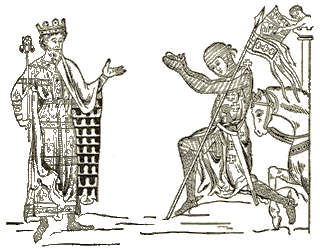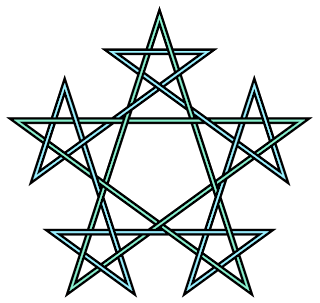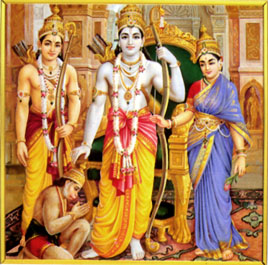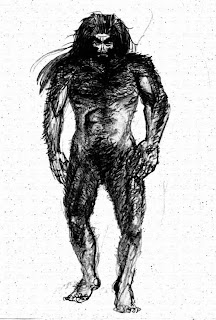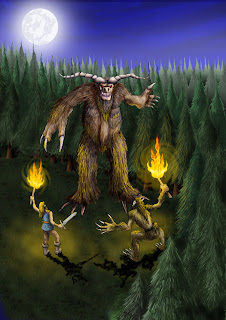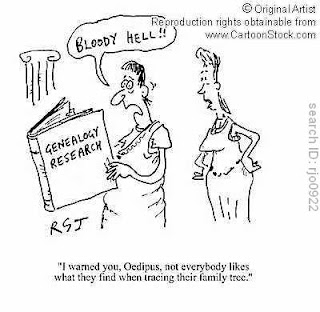Well here we are: my last blog. To finish off my blogging experience I'm going to continue the in-class discussion we had on Gawain. We were talking about the 6 kisses that Gawain received and if there was any correlation between them and the hunted animals. I can't really find any real connection to the plot but I noticed that the more kisses Gawain received from the queen, the smaller the hunted animal is. For example: 1 kiss equates to a deer, 2 kisses equates to a boar, and 3 kisses equates to a fox. I'm not sure whether or not this is simply a coincidence or was purposefully put in the story by the author (even though I have no idea why). Something else I wanted to discuss was the homosexual interpretation of the relationship between Gawain and the King. Personally, I believe that any story that has at least two people of the same gender can be interpreted to have homosexual undertones. Currently, the U.S. (and many other countries) are going through a phase of personal acceptance. By this, I mean that the U.S. is becoming much more open and accepting of homosexual relationships than it has been in past years. Gay rights is a huge controversy currently in the States. Due to this new-found (or somewhat new-found) freedom in sexuality within the american public, more and more homosexual interpretations of old and ancient literature are emerging. Honestly, I do not believe that the King and Gawain were involved in any sort of sexual relationship. I believe that the kisses were simply a plot device used by the author to create a scandalous situation that would tie back into the plot later. However, this is all up to the reader's own interpretation.
WC: 294
ENG 231: Heroes & Literature
Wednesday, April 25, 2012
Thursday, April 19, 2012
Gawain, the Knight at Night
So it's been a while since I blogged but todays discussion revolving around Gawain and his relationship with the queen intrigued me a little. First off, I'd like to say that, as a knight, Gawain is responsible for holding a very high moral standard. We discussed the 5 5's in class, and although many virtues were not included, one could assume that honesty and integrity are characteristics thats knights should display. I'm not an expert in typical medieval marriages, but I'm guessing that a wife should not hook up with someone other than her husband, and a knight (especially as awesome as Gawain) should not hook up or possibly even have sex with a married woman. What really makes the situation worse is that Gawain is a guest and allows the host's wife to come to his bed. Could it get any more messed up? Sure. To reward Gawain for his deceit and scandalous nature, the King rewards him with some hunted game everyday. Real good Gawain, real good. However, there maybe (and most likely will be) a consequence for Gawain's actions, or his lack there of. Seeing as how the writer of Gawain and the Green Knight was said to be quite religious, I imagine that the "wrongs" that Gawain commits now while come back to bite him in the end. Karma dude, it's comin after ya.
The next thing I want to talk about this the 5 of 5's of 5 pointed...star...thing.... Something else I wanted to include with the whole "hands discussion" was that the hands are used to pray (at least physically). I'm not sure if this is a legitimate symbol that actually plays a part in the authors original concept, or if it is simply a coincidence, but I can safely say that physically, our hands play a major role in our lives, and even more so back then. Now onto the "5 Joys of Mary". I really don't see how this fits in anywhere or for any reason. The joys of mary really aren't relevant to anything in the story (so far as I can tell). This leads me to believe that the author, as religious as he was, probably snuck this into the story to simply include biblical material. Maybe he did this because of his Christian nature, or maybe he did it because, well, he was just kinda writing on the fly and had to come up with something. There probably is a deeper meaning behind the 5 joys, but my measly freshman mind cannot comprehend it. Next, the senses... Well I can actually see how this could be an important aspect of medieval life. Back in the 400-500's, science wasn't so well established, so basically everything that could be taken in from the world around you seemed to be superficial (at least to us know). The senses were something that were not totally understood by medieval men and women but they played a huge role in day to day life. For example, in battle, knights relied upon their sense of touch, sight, and hearing. It was these senses that made a knight capable of battle, so I can see where this fits into the star of awesomeness, or pentagram, whatever. I can't remember all of the virtues that were displayed in class (I should have taken notes) but I do remember that Chastity, Friendliness, Chivalry and Free-Giving were most of them. Oh, and piety..just remembered that. Anyways, call me crazy but I believe that friendliness would include respect for another man and his property and treasures. For some reason, sleeping with your host's wife doesn't seem to fit in with any of the categories that were listed as virtues in the penta (-penta?) gram. Sure you could argue that Gawain hooked up with the 'Ol fair lady because he was because chivalrous and she wanted to be with him, but really? Being the courageous and great knight that he is, I think Gawain could turn down a lustful wife. Besides, a one night stand with a cheating wife seems like a better thing to give up than virtues that have shaped Gawain's very own persona and individuality. He's basically destroying his own credo for a couple smacks on the lips. Great choice...(sarcasm).
WC: 700+
The next thing I want to talk about this the 5 of 5's of 5 pointed...star...thing.... Something else I wanted to include with the whole "hands discussion" was that the hands are used to pray (at least physically). I'm not sure if this is a legitimate symbol that actually plays a part in the authors original concept, or if it is simply a coincidence, but I can safely say that physically, our hands play a major role in our lives, and even more so back then. Now onto the "5 Joys of Mary". I really don't see how this fits in anywhere or for any reason. The joys of mary really aren't relevant to anything in the story (so far as I can tell). This leads me to believe that the author, as religious as he was, probably snuck this into the story to simply include biblical material. Maybe he did this because of his Christian nature, or maybe he did it because, well, he was just kinda writing on the fly and had to come up with something. There probably is a deeper meaning behind the 5 joys, but my measly freshman mind cannot comprehend it. Next, the senses... Well I can actually see how this could be an important aspect of medieval life. Back in the 400-500's, science wasn't so well established, so basically everything that could be taken in from the world around you seemed to be superficial (at least to us know). The senses were something that were not totally understood by medieval men and women but they played a huge role in day to day life. For example, in battle, knights relied upon their sense of touch, sight, and hearing. It was these senses that made a knight capable of battle, so I can see where this fits into the star of awesomeness, or pentagram, whatever. I can't remember all of the virtues that were displayed in class (I should have taken notes) but I do remember that Chastity, Friendliness, Chivalry and Free-Giving were most of them. Oh, and piety..just remembered that. Anyways, call me crazy but I believe that friendliness would include respect for another man and his property and treasures. For some reason, sleeping with your host's wife doesn't seem to fit in with any of the categories that were listed as virtues in the penta (-penta?) gram. Sure you could argue that Gawain hooked up with the 'Ol fair lady because he was because chivalrous and she wanted to be with him, but really? Being the courageous and great knight that he is, I think Gawain could turn down a lustful wife. Besides, a one night stand with a cheating wife seems like a better thing to give up than virtues that have shaped Gawain's very own persona and individuality. He's basically destroying his own credo for a couple smacks on the lips. Great choice...(sarcasm).
WC: 700+
Wednesday, March 21, 2012
"The One" & "The Moor"
Seeing as how I skipped last weeks blog I'm going to include The Matrix, Daosim, and Othello. For starters let's talk about The Matrix and Daoism. As mentioned in class, it's amazing to see how similar the themes in The Matrix are to Daosim. First off, the matrix itself is thought to be a world which one must experience before it can be explained. Morpheus straight up tells Neo that he must "walk the path" to understand it ("the path" also coinciding with Dao or "the way"). The Oracle is so conscious of the matrix because, spoiler alert, she is a program and thus realizes that the matrix is not reality. This can be said of those who believe in Daosim; such people reject this reality because they have walked "the way" and thus understand the truth about our own reality. Neo also goes with the flow, which is a fundamental theme within Daosim. One example is when the Oracle tells Neo he is not "the one". He realizes that his place in the universe is not that of the one and instead Neo chooses to follow his new destiny as an ordinary member of the Nebuchadnezzar. I could go on, but we pretty much covered the majority of points in class.
Now onto my thoughts on Daosim. Trying to leave all of the philosophical, and analogical phrases aside, I would say that Daosim is essentially a religion based upon following the "tune" of the universe while simultaneously finding your place in it. Like we discussed before, "The Way" is much like water. It flows here and there with its own direction and momentum that influences the objects around it. "the way" is very similar to other religious experiences where many believers will tell you that you must experience a particular feeling, emotion, moment, etc. Like I said, we pretty much got this down in class (or did we?)...
On to Shakespeare. First off I'd like to say that Othello should be named Iago. Iago is responsible for most of the changes in the plot, much of the manipulation and simply has many more lines than othello, but thats besides the point. Something interesting i found within the reading was Iago's jealousy of the adultery that supposedly occurred between Othello and Emilia. My first question is: could Othello actually have slept with Emilia? To me it seems unlikely. Othello seems quite loyal to Desdemona and seems to be quite in love. However, no actual proof is given within the play that Othello does NOT sleep with Emilia. My second question is: why do we consider Iago to be so evil? I would be pretty upset to if I believed that my wife had slept with another man, and that that other man had denied me a well-deserved promotion. But much like other "villains" we have encountered in class, what is considered evil by some is usually a majority opinion that differs with that of the antagonist. But hey, if society didn't have differing views, then we wouldn't have villains, which would me that we wouldn't have stories such as...well...pretty much every story. I would like to point out, however, that if Iago was a super villain his super power would be manipulation. He is literally an artist in deceit and manipulation. He understands the differences and weaknesses in separate individuals and uses those weaknesses against them while also benefitting himself.
WC: 571
Tuesday, February 28, 2012
Ramayana Book 3: The Perfect Girl vs. The Perfect Guy
As we discussed in class, book 3 can basically be summed up in one sentence: Rama hunts a magical dear, meanwhile Ravana swoops in and kidnaps Sita. Since the book itself is more or less "simple" I will focus on the concepts found within the literature instead. One such concept we discussed in class was this idea of the perfect guy or the perfect girl. Personally, I believe that one of the purposes behind the Ramayana itself is to "educate" people on how they should be. Sita and Rama serve as paragons for the Indian culture, and more likely, nearly every culture. They represent so many positive attributes, many of which we talked about in class, such as: loyalty, beauty, strength, kindness, calmness, etc. What I find really interesting about these models of perfection is how much the "model" can vary depending upon which gender it is coming from. To me, it seems that when a gender is asked to identify the "perfect individual" for the other gender, they base the majority of their reason on physical attractiveness. This was very easily seen in class when opposite genders merely selected good looking role-models for each other. However, when a gender is tasked with defining their own role model, they typically choose a model that is well respected, powerful, influential and important, not merely beautiful. So, when we look at the Ramayana, we can see that each gender has been specifically "assigned" a model that they should follow. Much like superheroes, Rama and Sita have become tools to enlighten people on how they should act, and what they should strive to become as human beings. Well now that I've begun to dabble in the topic of superheroes, lets head that way. Is Rama a super hero? In all honestly, I don't think we've actually read enough to answer that question. So far, we really haven't seen any notable behavior from Rama thus far, so deciding whether or not he is a superhero is going to have to wait.
Another thing I want to talk about is this idea of obligate sympathy that the reader experiences while reading the Ramayana. The reader begins to actually sympathize with Ravana, even if it is for a very small time. We see how badly Ravana wants Sita, and how "in love" he has become with such a beautiful woman, and although we realize that he is the "bad guy" we do understand him for a moment. Its this concept of relate ability that allows the audience to dig deeper into the character and their motives. One good example of this is the movie Law Abiding Citizen. In the movie, Gerard Butler's family is murdered so he sets up a plan for revenge. While executing the plan, he gets carried away and begins to kill innocent people. Although the audience knows that Butler is supposed to be the "bad guy" they sympathize with him because his family was murdered. By the end of the film, you cant decide whether you support Butler or you don't. This is essentially what happens in book 3, or t least until Ravana kidnaps Sita... This action is pretty much the defining moment for Ravana and it serves as a confirmation of Ravana's evil intent. As I discussed in an earlier post, it's also funny to think that our perspective is what truly defines the moral actions within a story. Well, perhaps not kidnapping, but say that Rama was labeled the "bad guy", then Ravana kidnapping Sita would have been a heroic act. However, since Rama has already been established as the "good guy" anything that goes against him will inevitably be considered wrong or evil.
WC: 615
Thursday, February 23, 2012
Ramayana: An Indian Soap Opera
So, compared to the texts we have read thus far, Ramayana is turning out to be fairly boring. Compared to Beowulf, the Illiad, Oedipus and Gilgamesh, the Ramayana is like a furry bunny compared to a ferocious wolf (so far). What I mean to say is that the conflicts expressed in the Ramayana are more internal and "emotional" than previous works, such as Beowulf where fighting and killing stuff basically represents all of the existing conflicts. I'm guessing that the story becomes more violent and physically involved later on, but so far its a whole lot of complaining, scheming and crying (but not by Rama, remember he's perfect...). So, first of all lets discuss Manthara's apparently inherent evil quality. Much like Mr. Bahlman said in class, Manthara could have been interpreted as a a "good" character had Bharata been favored over Rama. Essentially, this proves the point that morality in terms of "good" or "bad" is ultimately based on perspective. This concept is extremely prevalent in modern day society. Topics such as illegal immigration, gay rights, abortion, etc. all have to deal with this conflict of perspectives to conclude what is "good" or "bad". The fact that the Ramayana actually brings about this critical thinking is a testament to why we even read it in the first place. Ancient texts such as the Ramayana involve concepts and ideas that still appear in the present. Since ideas found in the Ramayana and other ancient texts still occur in our society, this proves that some ancient interpretations of life have evolved into immortal thoughts that reappear throughout all mankind. They have become "meta myths" (I think that's what Mr. Bahlman told us, but I may be confusing the term). Speaking of the immortality of ideas, lets discuss ideals.
I think its safe to say that in the Ramayana, Rama is synonymous with "The Ideal Indian". He's like the paragon to all Indians and to the culture. So why is this important to know? Because the ideals that are symbolized in literature through characters are ideals that can tell you alot about a culture. For example, if Beowulf had been exiled by Wealhtheow, I highly doubt that Hrothgar would have broken down into tears and passed out. Of course this event doesn't actually occur, but you can assume how the characters would respond to it if it did, after having read the story. Instead of openly expressing his emotions and having a pity party, it is likely that Hrothgar would have kept his deeper emotions to himself. However, Dash (aka Dasharatha) is slightly more transparent...as in fainting and wailing. This hypothetical contrast I have set up reveals that Indian culture and Angelo Saxon culture was very different. Indians believed in showing emotion, and an outward projection of inner thought. They were quote-unquote "more sensitive". It is quite obvious after reading Beowulf that the Angelo Saxon culture revolved around emotional control and outward stability. Their culture was certainly more focused on "manliness" and the discipline of emotional expression. It can be said, however, that Dash's crying is appropriate for the circumstances, so that judgement is up to the reader. The fainting however...
Remember tho, there is a balance to find between the extremes of emotional control. Different cultures, especially ancient ones, simply differ on where this "middle ground" lies.
Something else I want to talk about is Rama himself. I'm interested in how Rama is going to behave later on as the story progresses. Will we ever find a fault in Rama, or is he truly "prefect". If we fail to uncover a fault or any hint of Hamartia (although this story is not a tragedy) then we will be able to observe what the Indian culture was and is trying to portray as a perfect individual. Rama's character will be tested more and more as the story progresses (I assume) so we will be able to pick apart the figurative anatomy of the "ideal man".
The last thing I want to talk about, which i talk about in pretty much every blog entry, is symbolism. This story is just begging to be analyzed. A constant number of 14 years is restated and restated, is this number a coincidence . The enemy that Rama eventually faces has 10 heads. Is that symbolic of something related within the Indian culture? Obviously Manthara symbolizes evil, but is it a particular type of evil or disfunction. Greed? Envy? Selfishness? Or perhaps just a general, basic embodiment of evil? I don't know, but as a read it's always a good idea to think critically to try and discern what is what and why it is present. If we, as students, didn't do this, then what is the point of even reading the literature?
WC: 795
Thursday, February 16, 2012
Gilgamesh: Hairy Men, Prostitutes and Hiking
Gilgamesh may be one of the most random stories I have ever read, if not the most random story. As we discussed in class, Gilgamesh is a, 2/3 God and 1/3 Human, King who rules over his people as a tyrant...yet he is glorified all throughout the book... yet he seriously doubts himself when facing Humbaba... yet he beats Humbaba. There seems to be a lot of internal conflict going on within Gilgamesh, either that or whoever wrote the epic wasn't too good at writing stories. Despite the amount of randomness present in the story, (such as Humbaba appearing out of nowhere) there are some redeeming qualities to the literature. For example, we have a contrast between "heroes". On one side we have Gilgamesh: extremely powerful and influential; however, Gilgamesh is very, very selfish and displays both good and bad characteristics. Enkidu on the other hand is somewhat "super" like Gilgamesh, but is a more caring individual. Enkidu is certainly less selfish than Gilgamesh, especially when he decides to fight Gilgamesh over the atrocities he was committing (prima nocta).
Superhero time... Is Gilgamesh a superhero? In my opinion no, at least not yet. We have yet to finish the story, but thus far I would say that Gilgamesh is definitely not a "superhero" in traditional respects. Gilgamesh does not have a costume, so to speak, does not fight for the "common good", and he is not altruistic. Yes, he does go off to fight Humbaba, but only because he desires to. Out of boredom or for glory, Im not sure which. Gilgamesh does go on the heroes journey (a.k.a. walking out into the wilderness, fighting, and then coming back) but this does not necessarily make him a superhero. For the majority of what we read, Gilgamesh is more of a tyrant or a bully than a hero. Enkidu, however, may be interpreted as a hero. He has a costume or at least something to identify him with, in this case, he is very hairy. This gives him a certain recognizability that can be utilized by the audience. Enkidu also SEEMS to have the best in mind. He goes off to fight Gilgamesh after hearing that he has been sleeping with unwilling brides, and swears to protect Gilgamesh in the face of danger. Truly, to say that Enkidu is a "superhero" is a stretch, but I suppose the argument can be made.
Next I wanna talk about symbolism. With many of the ancient texts we read in class, I always ask myself: Is this meant to be symbolic? So many times if feels like these stories are either way to simple to not include deeper meanings, or they are way too simple simply because of the era in which they were written. Just like Oedipus and Beowulf, many symbolic references can be made when diving deeper into the text. Perhaps Enkidu is supposed to be a paragon of the perfect ruler to the people of Mesopotamia, while Gilgamesh is an example of a faulted ruler. Perhaps the fight between Humbaba and Gilgamesh and Enkidu represents the eternal struggle of good vs. evil, or the concept of civilization vs. the wilderness and savagery. Or, most likely, the Epic of Gilgamesh was written without any attempt to include symbolism. It's very likely that Gligamesh was written simply for entertainment and does not allude to any hidden ideas that the author may have wanted to illustrate. Im not really sure, but as we read these ancient stories, I believe its important that we process the information critically and always ask the question of whether a story is meant to be taken literally or figuratively.
Next class Id really like to go a little more in depth with Gilgamesh's dreams and any possible symbolism that might arise from them. I also would like to briefly discuss the relationship between Gilgamesh and the Gods, and the correlation between Mesopotamia and Egypt regarding the god Anu ( a common deity).
WC: 663
Saturday, February 4, 2012
Oedipus: Worst-Case-Scenario Literature
Wow... Oedipus is depressing. But I guess back in ancient times when tragedy was a popular genre for plays, someone gouging their eyes out was entertaining, at least to the Greeks. Anyways, I guess a good place to start with this blog would be to pick up on in-class discussions. I remember our class contemplating on whether not Oedipus was a "good guy" or a "bad guy". Although he isn't a very genuine individual (like when Oedipus says he suffers more than anyone, even though he is not being directly afflicted by the plague), he does seem to have his country in mind. Personally, I believe that Oedipus is a man that has good intentions, but with a little fate, he finds a way to screw over everything. In more academic terms, Oedipus is oblivious to the world around him; as his insecurity turns to paranoia, and his confidence turns to abhorrence, Oedipus begins to collapse on himself like a dying star. Although Oedipus is certainly not altruistic, he does his best to rid the city of the plague and discover the true murderer, even though all of this is done in ignorance. So after marrying mommy and killing daddy, and basically having the worst luck of any human ever, he gouges his eyes out. Not exactly a happy ending, but hey, you can't fight fate...or can you?
Fate is an interesting concept. I suppose it depends upon how we define fate. Is fate a possible path that has been intended for our future? Or is it an undeniable, unchangeable destination that has been cemented in our lives and cannot be altered? Or is fate a myth, pure fabrication? Im not really sure. I'm no philosopher but if i had to take a guess, I'd say that fate ( at least in terms of the supernatural) is not real. I believe that each of us is free to do as we wish and to make unexpected or unpredictable changes in our lives. Some might say "well it was fate that made you make those changes and fate that caused you to come to that conclusion." One could make an argument that fate is simply an end result, no matter what the result is. In that capacity. fate would be undeniable but at the same time, it's influence could not be proved. If fate were susceptible to free will and choice, it would create a alternate reality, without proof of its existence. In oedipus case, fate's intervention was quite apparent,; however, in real life we don't prophecies and we don't have oracles. This is where "willful suspension of disbelief" comes in. Does fate exist? Oedipus' literary universe it does, outside of that, who knows....
Fate is an interesting concept. I suppose it depends upon how we define fate. Is fate a possible path that has been intended for our future? Or is it an undeniable, unchangeable destination that has been cemented in our lives and cannot be altered? Or is fate a myth, pure fabrication? Im not really sure. I'm no philosopher but if i had to take a guess, I'd say that fate ( at least in terms of the supernatural) is not real. I believe that each of us is free to do as we wish and to make unexpected or unpredictable changes in our lives. Some might say "well it was fate that made you make those changes and fate that caused you to come to that conclusion." One could make an argument that fate is simply an end result, no matter what the result is. In that capacity. fate would be undeniable but at the same time, it's influence could not be proved. If fate were susceptible to free will and choice, it would create a alternate reality, without proof of its existence. In oedipus case, fate's intervention was quite apparent,; however, in real life we don't prophecies and we don't have oracles. This is where "willful suspension of disbelief" comes in. Does fate exist? Oedipus' literary universe it does, outside of that, who knows....
Something else we talked about in class that I wanted to review was Oedipus' name. I think we were trying to understand why Oedipus is named the way he is. Mr. Bahlman told us that Oedipus can be translated into "misshapen foot" or "swollen foot". As I was reading I stumbled upon a couple lines that referenced Oedipus birth and how the tendons in his feet were bound together. During a dialogue between Oedipus and the messenger on page 644, the messenger says, "...the tendons of your feet were pierced and fettered...so that from this you're called your present name". So to clarify the discussion we had in class, Oedipus is named so because of the injuries he sustained to his when he was bound up and abandoned in the wilderness. Polybus must have noticed the abnormal scars and damage found on Oedipus' feet and ankles, and named him rightly so. If you wanna know a little more about the correlation between the scars and Oedipus name check out this website: http://www.shmoop.com/oedipus-the-king/scars-on-oedipus-feet-symbol.html
The end...
WC: 627
Subscribe to:
Posts (Atom)
